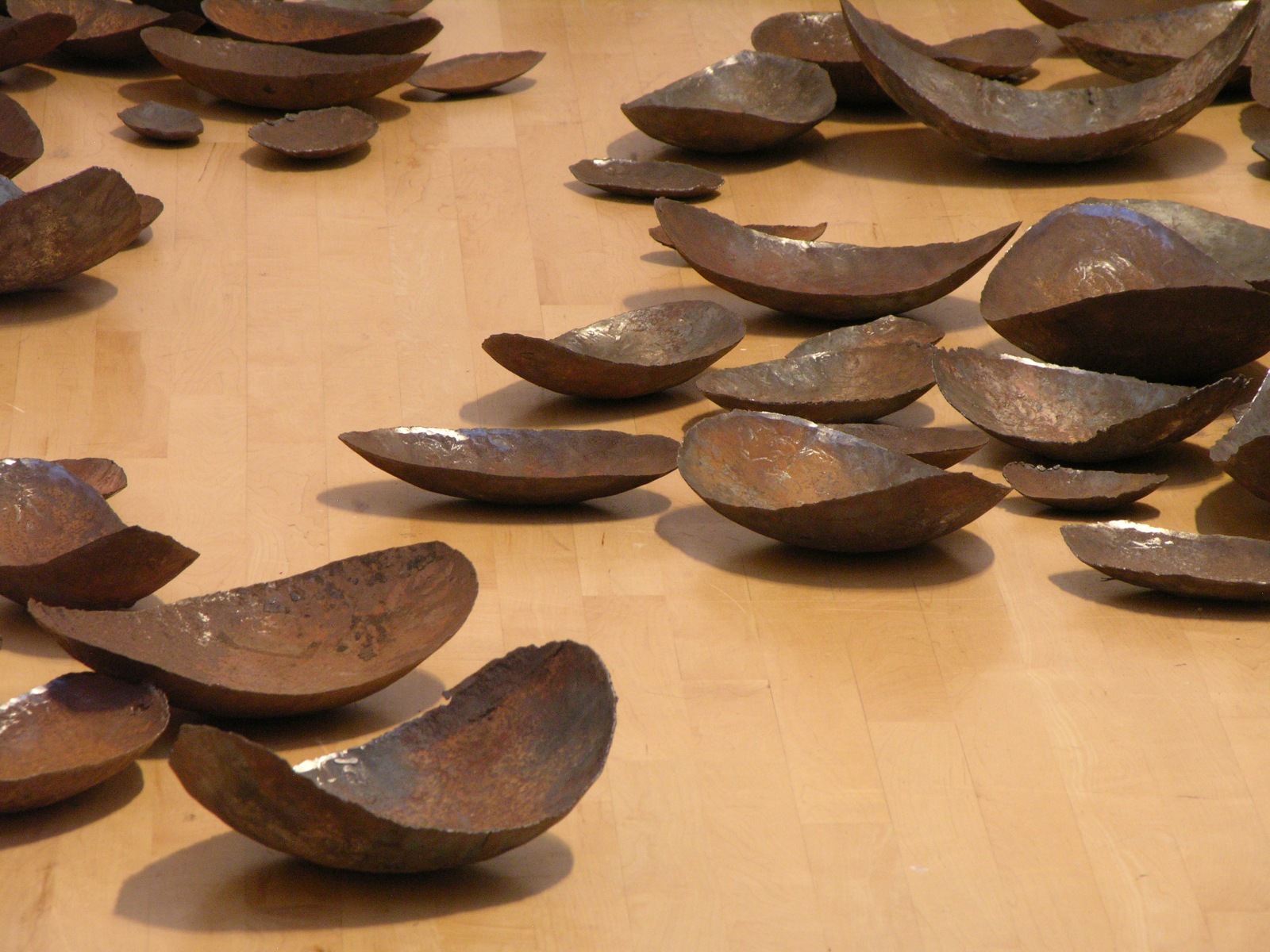
Bangalore-based artist, Ranjani Shettar, is only thirty-one years old and already an artist of international acclaim-participating in biennials in France, United Arab Emirates, and Australia. In the US, she was well-received in New York City (Holland Cotter of the NYT gave her a glowing, optimistic review) as well as the ICA Boston, and the Museum of Modern Art at Fort Worth.
Shettar's sinuous, organic structures suggest natural elements while utilizing both man-made and natural materials, as well as incorporating pre-industrial workmanship with contemporary technique. Though her sculptures initially appear delicate and fragile, upon closer examination, one realizes that each petal or wing-like appendage is made of wrought iron or solidly cast in some kind of resin. In this way, Shettar's works testify to ideas of history, process, time, and evolution.
I was struck by the fluid presence of Shettar's sculptures in the gallery space- especially in her room-sized installation, Sing Along. The sculpture hangs at various lengths and locations in the gallery, allowing viewers to circumnavigate and stand under each section - hanging so low in some areas that it seems in danger of being grazed by a tall individual's head. The piece casts beautifully intricate shadows on the wall - extending the work of art to its specific surroundings. Though the concept of this piece refers to the Koel bird (a bird that lays its eggs in other nests), this idea does not communicate itself right away, if at all - in this way, Shettar seems to work intuitively - expanding on a theme by responding instinctively to her thoughts. This idea of an intuitive process or a stream of consciousness approach echoes in her poetic titles, Me, No, Not me, Buy me, Eat me, Wear me, Have me, Me, No, Not me (2007).
The curvilinear, organic forms and processes in her sculptures translate remarkably well into her wood-block prints - in which Shettar isolates certain areas of wood-grain patterns with color and space.
-SF Examiner